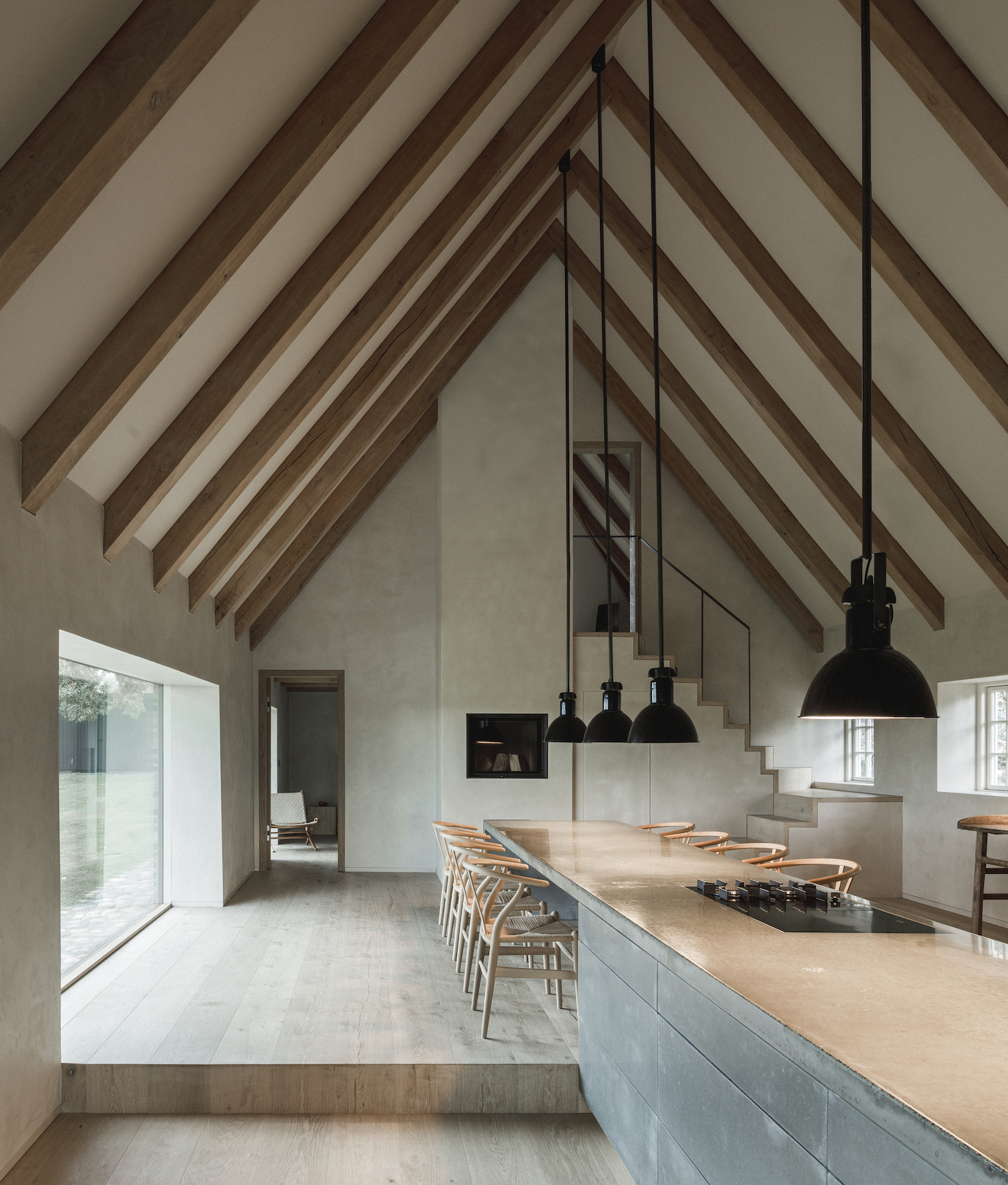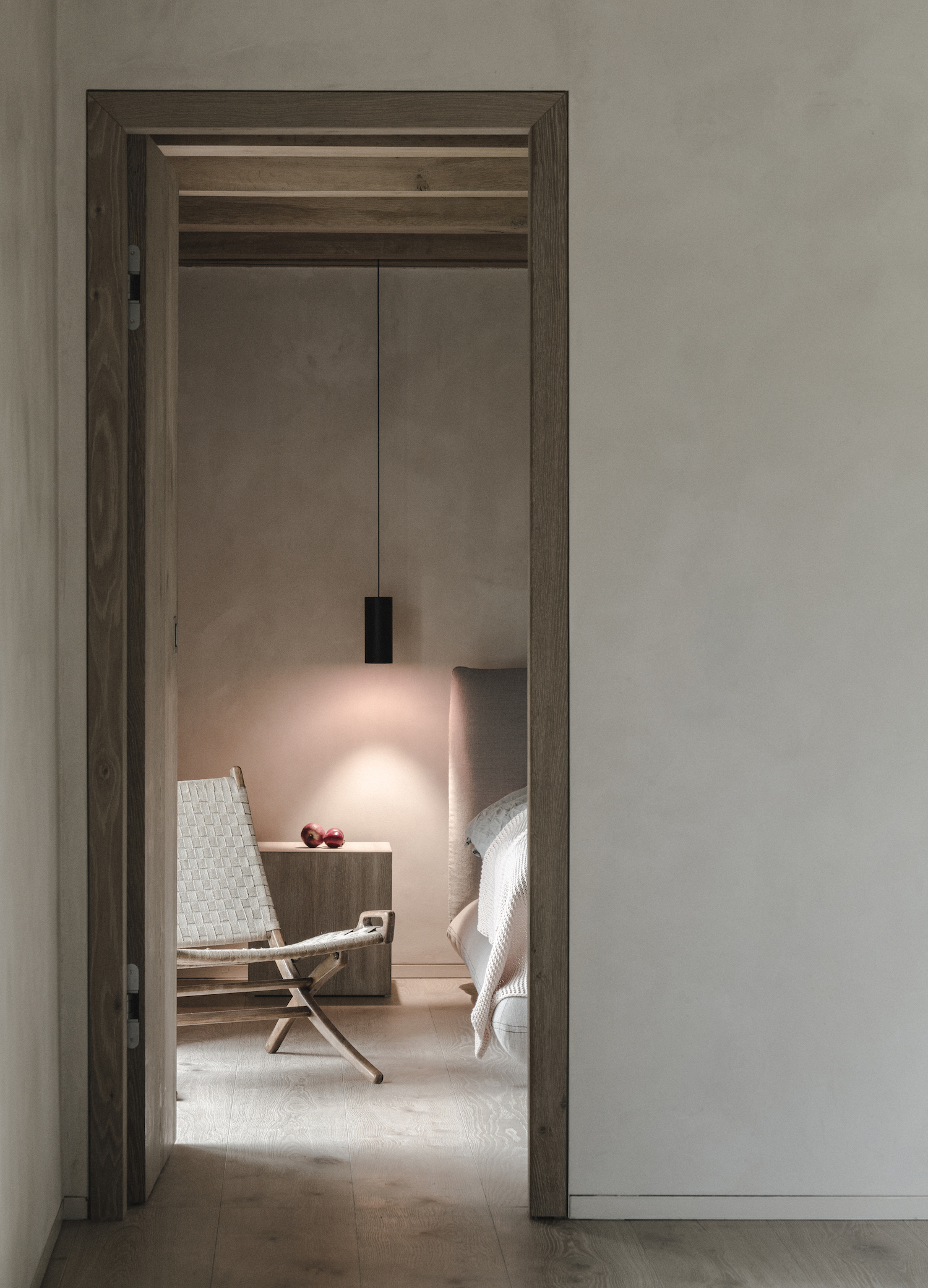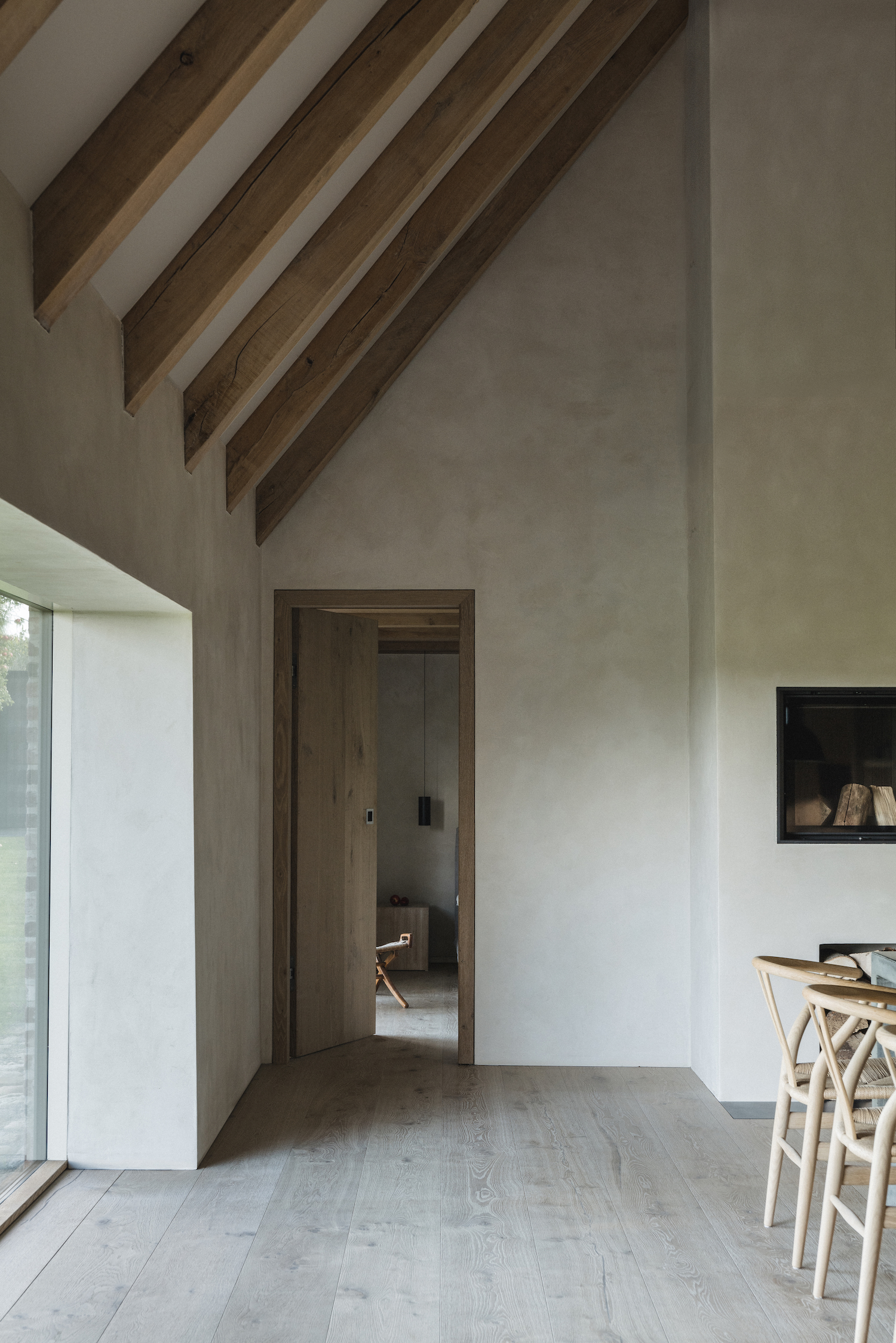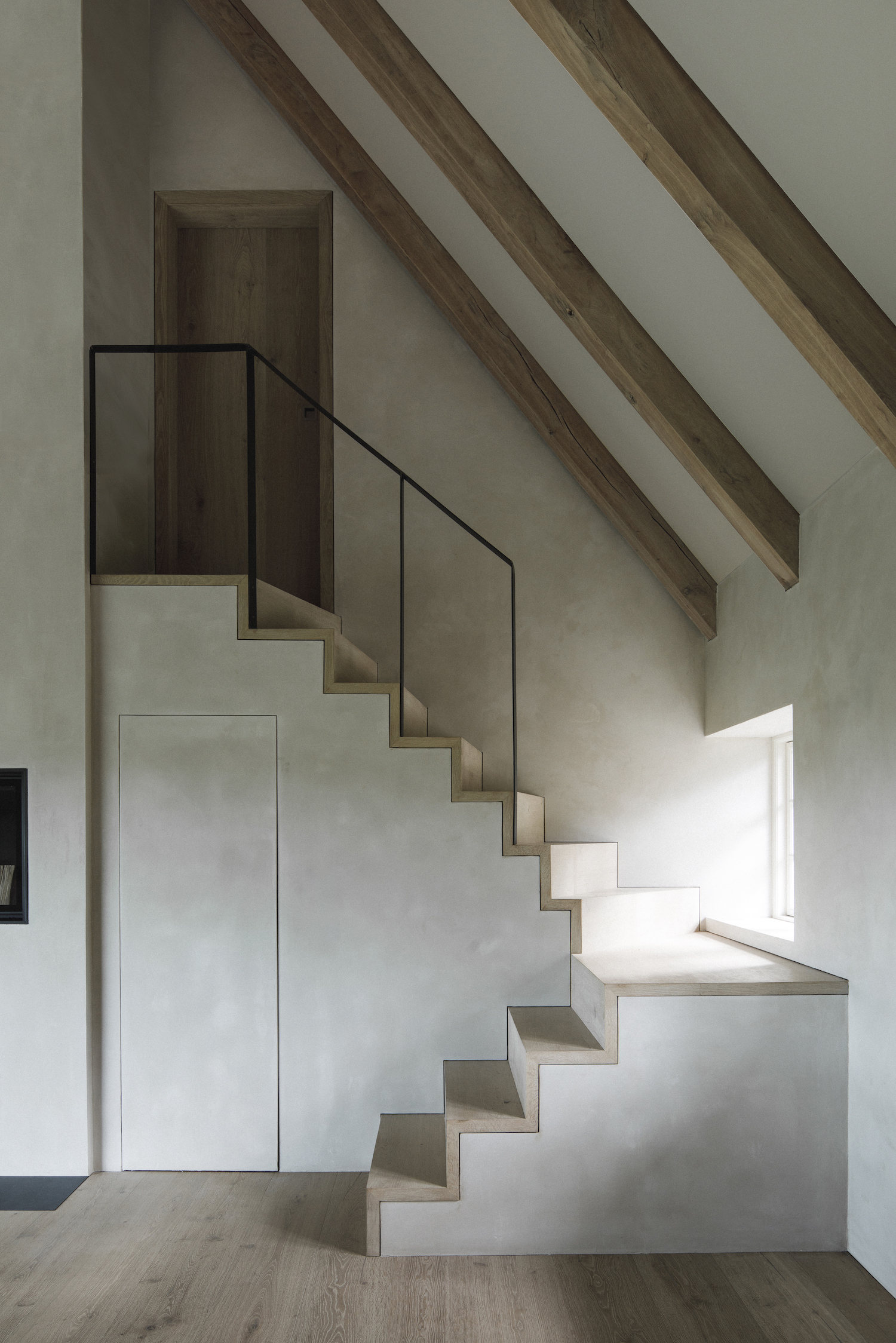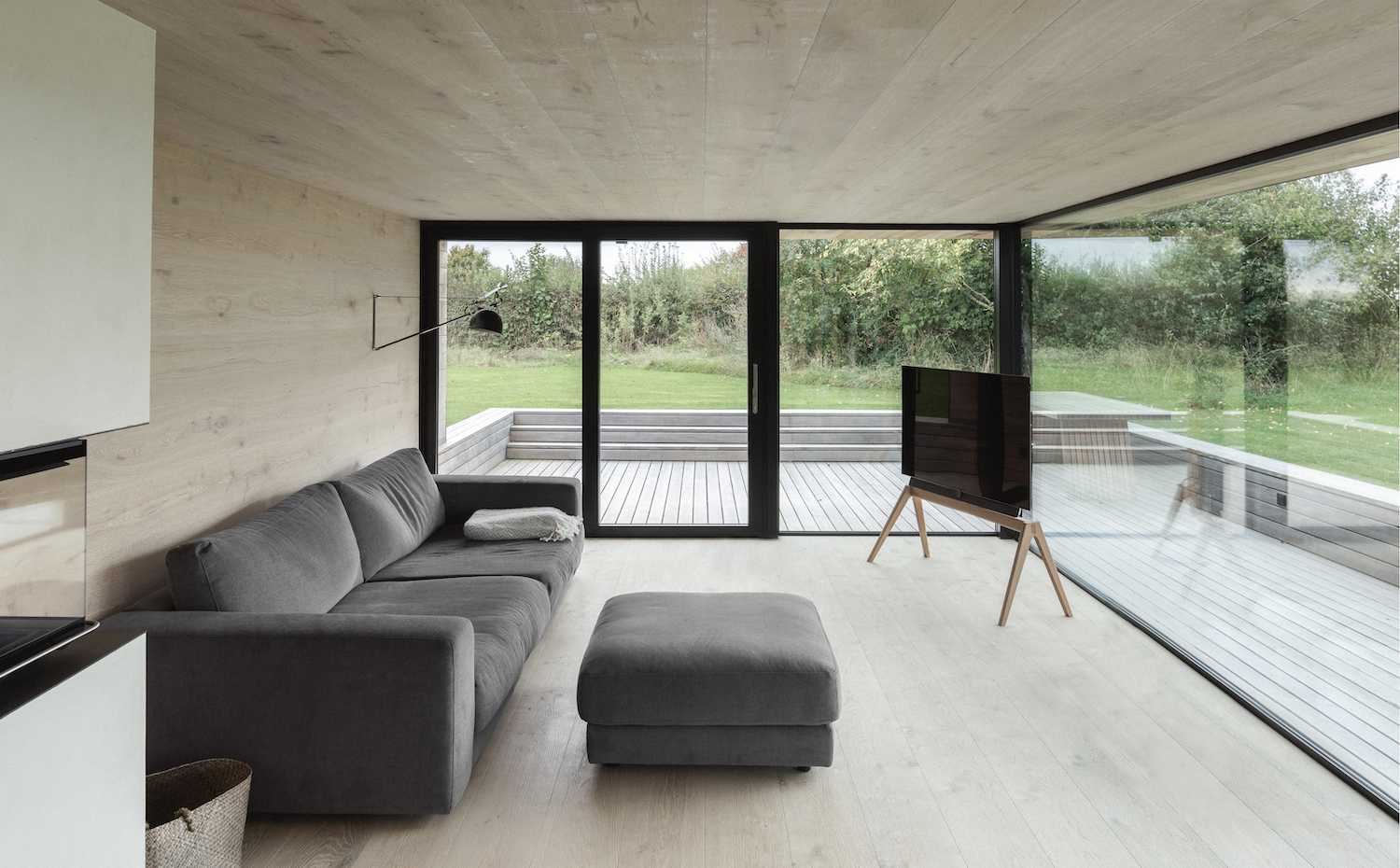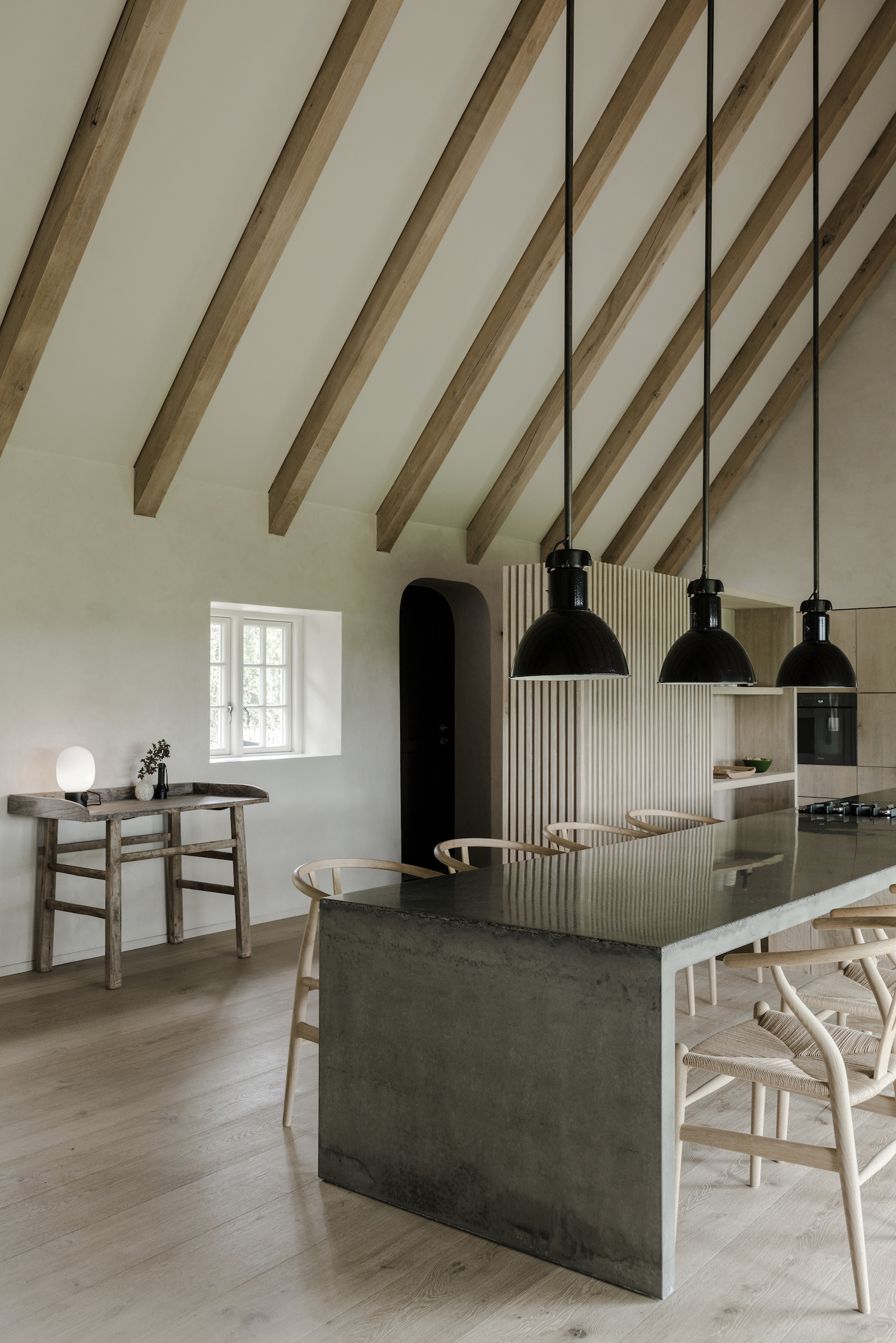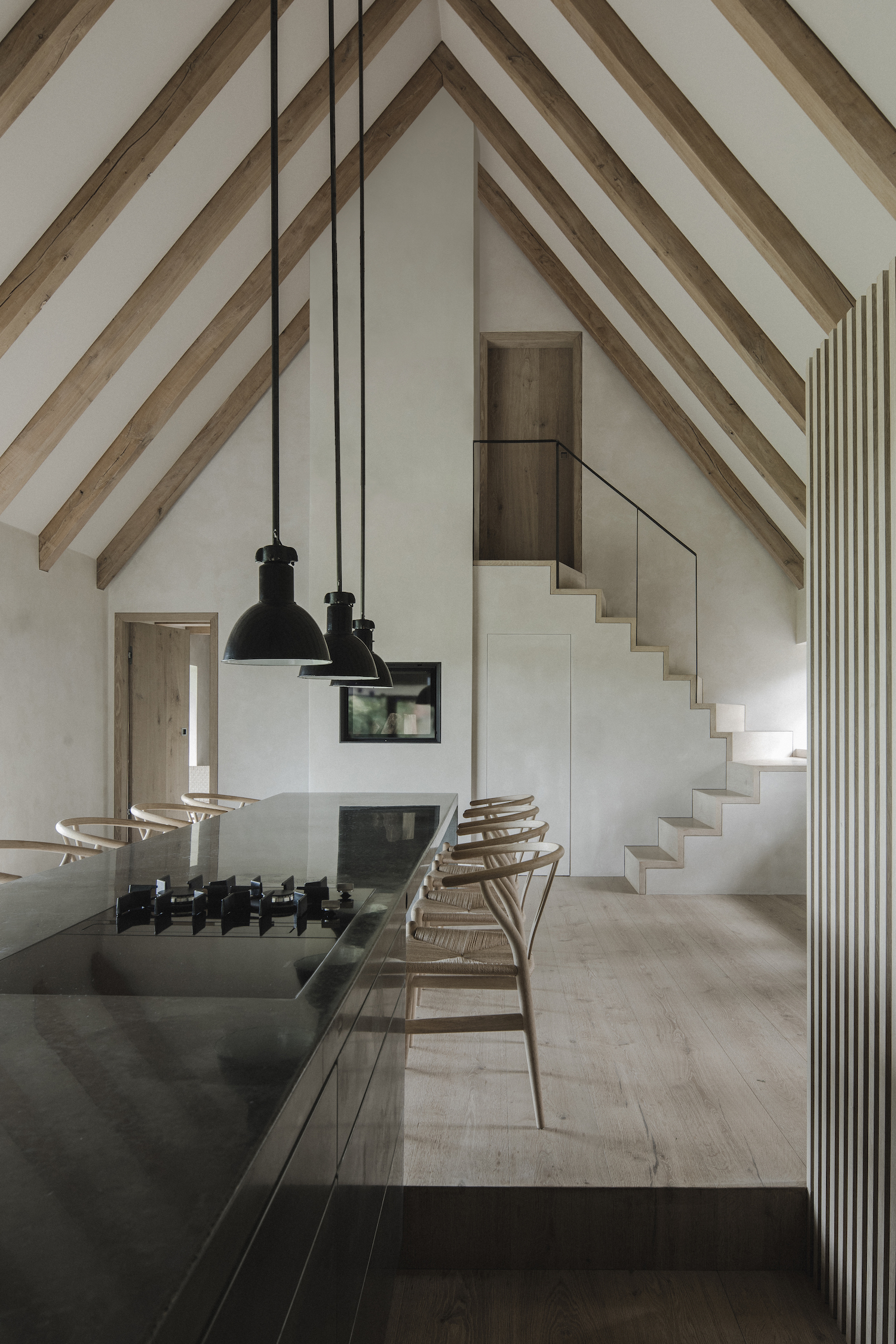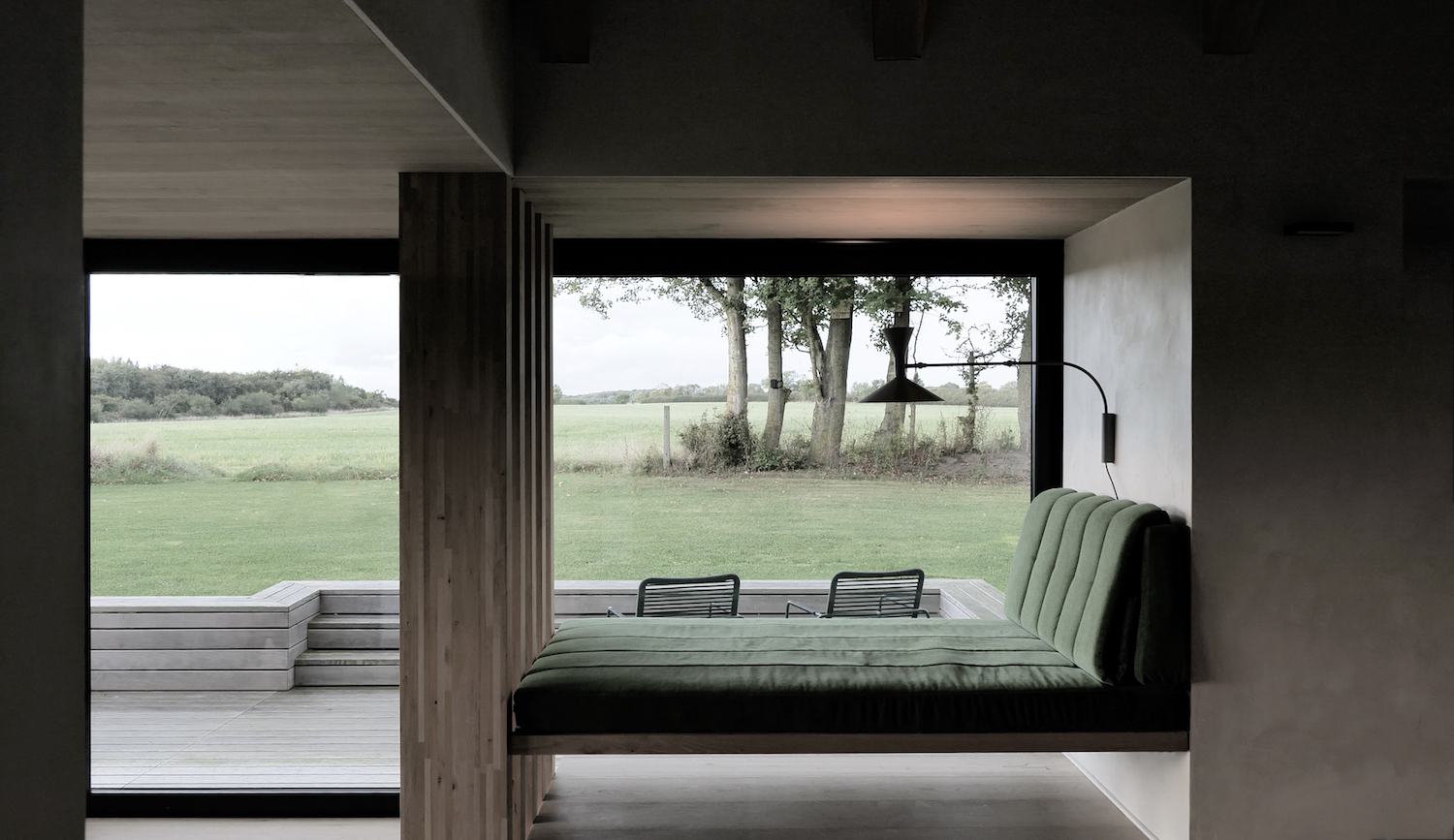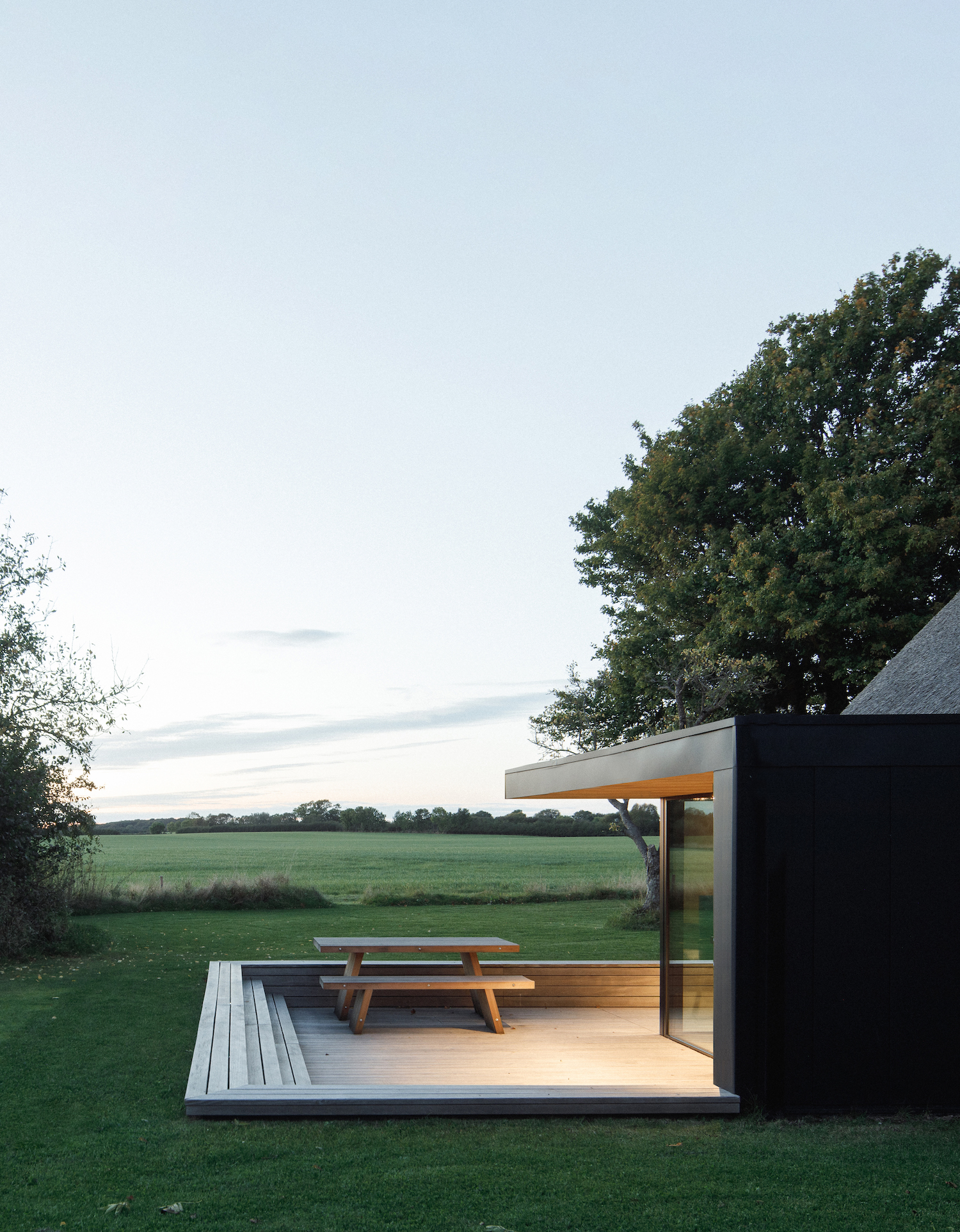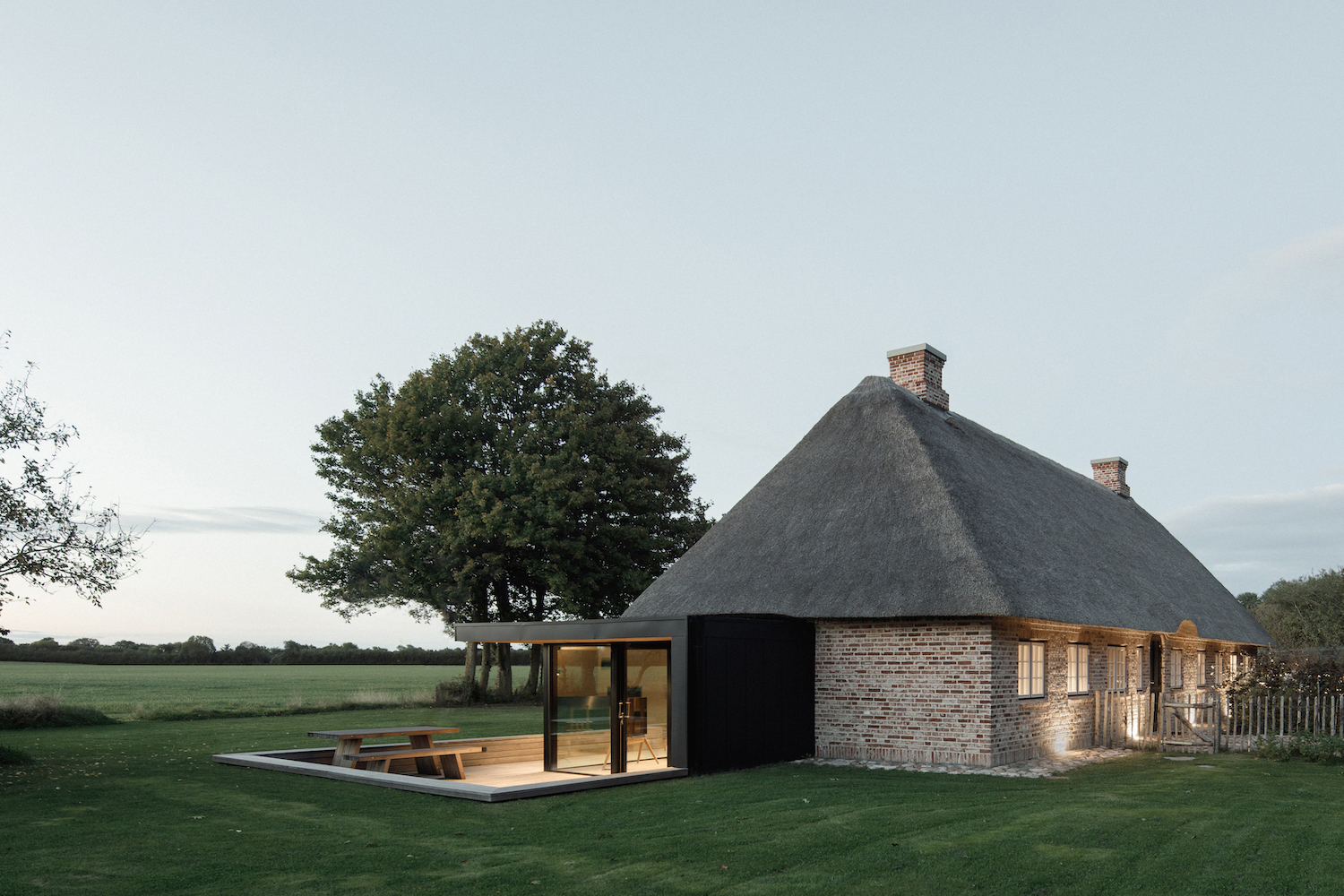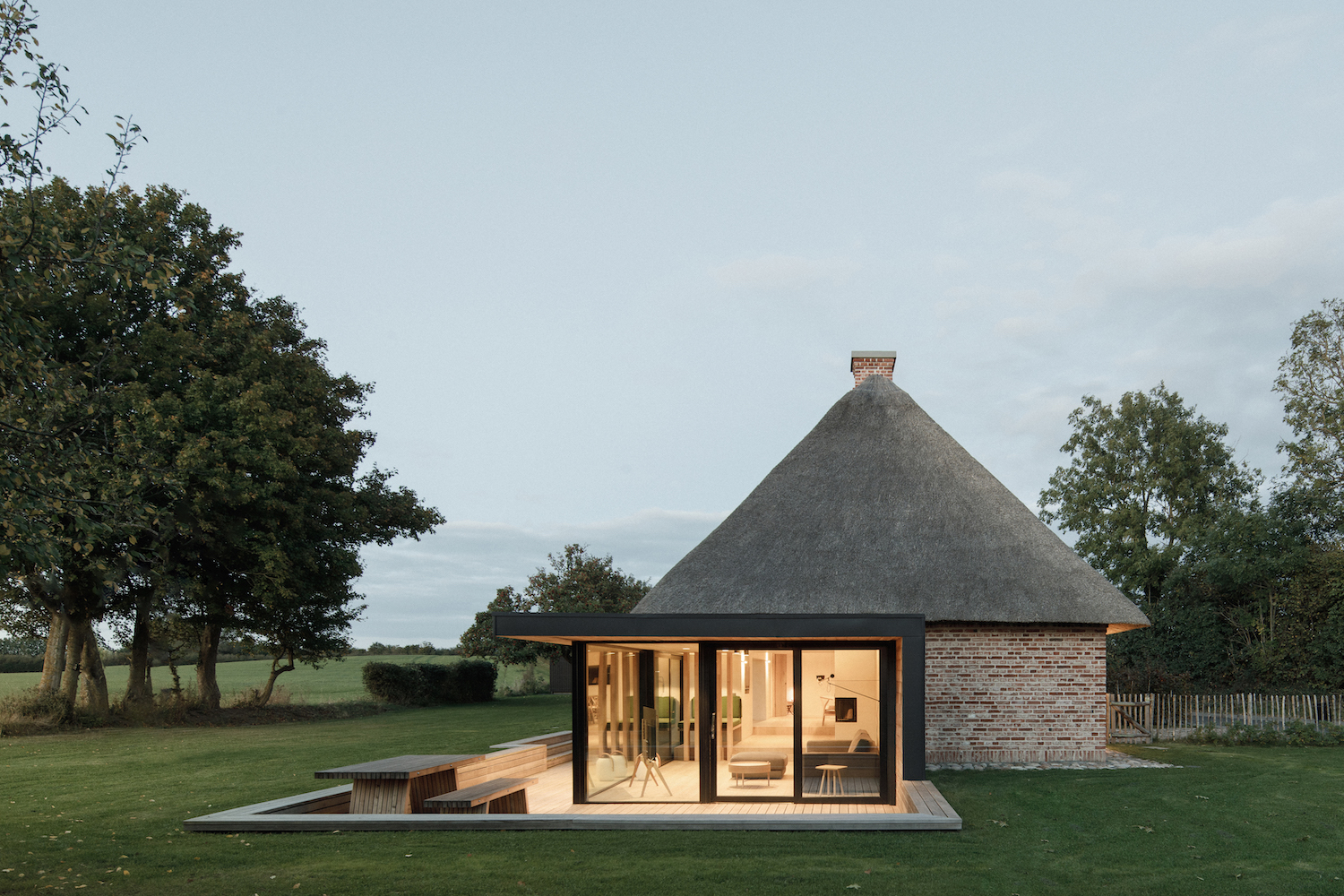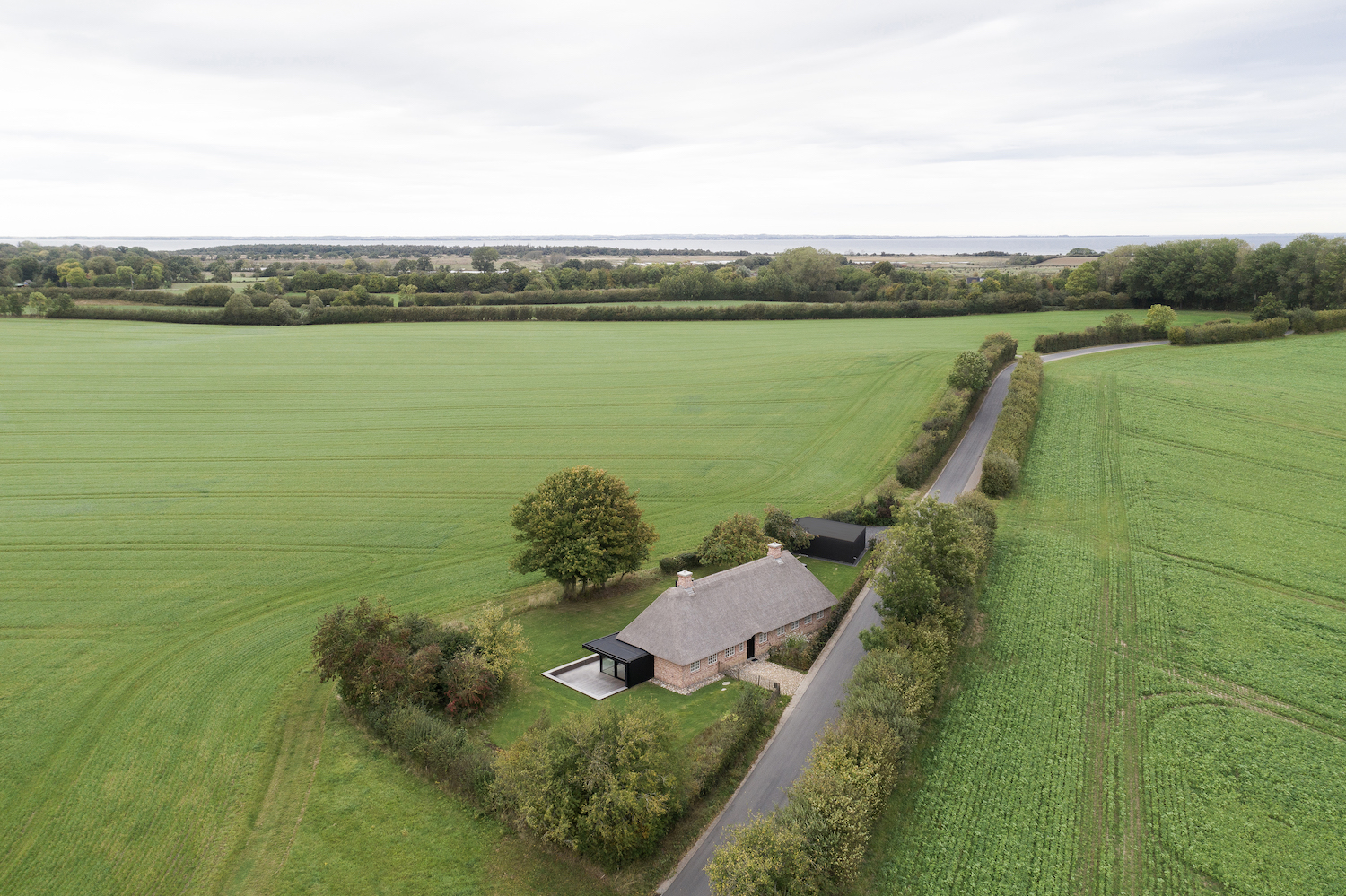Nieby Crofters Cottage is a minimal cottage located on the baltic coast of Germany, designed by Jan Henrik Jansen and Marshall Blecher. The thatch roofed, brick cottage was originally built by tenant farmers or crofters from a nearby estate in the late 1800’s. It stands on a small triangular plot of land surrounded by barley fields and faces toward the geltinger birk nature reserve where wild horses and deer still live amongst the marshlands. The current owners bought the cottage in a dilapidated condition after it had been abandoned for over a decade. The house had such low ceilings that they were unable to stand in most of the rooms, a pig stie and multiple sheds had been attached onto the back of the house and the roof had partially collapsed.
Jan Henrik Jansen arkitekter and (Australian architect) Marshall Blecher were hired by the new owners who dreamt of converting it into a contemporary country retreat. It was important for the architects to maintain the historical appearance of the cottage in an area where many similar buildings have been rennovated beyond recognition. The facade of the house facing the street was preserved and restored with only a minimal, black steel dormer window belying the more substantial alterations which open onto the private rear yard. A subtle black framed addition containing an oak lined living space is tucked under the thatched roof and opens onto a sunken timber terrace while large picture windows are cut into the historic brick volume in areas which had been damaged from the previous additions.
The centre of the house, which once comprised a maze of fourteen small rooms was opened up, creating one large and airy kitchen and dining space with a high, chapel like ceiling. A six meter long concrete plinth standing at the centre of the room which doubles as an island bench and dining table, had to be lowered into the house by a crane while the roof was being reconstructed. The interior combines historic elements including small mullioned, timber windows and exposed oak rafters with sharp, minimal and modern interventions. The walls of the house are finished with a textured, chamois plaster while joinery, doors and furniture are custom made from German oak to match the floorboards. The house now meets german sustainability standards; it is highly insulated, features under floor heating and custom triple glazed windows. The owners of the cottage, who run an international business and live in Hamburg, spend their weekends relaxing in the house and plan on retiring here.
Photography by Jose Campos
